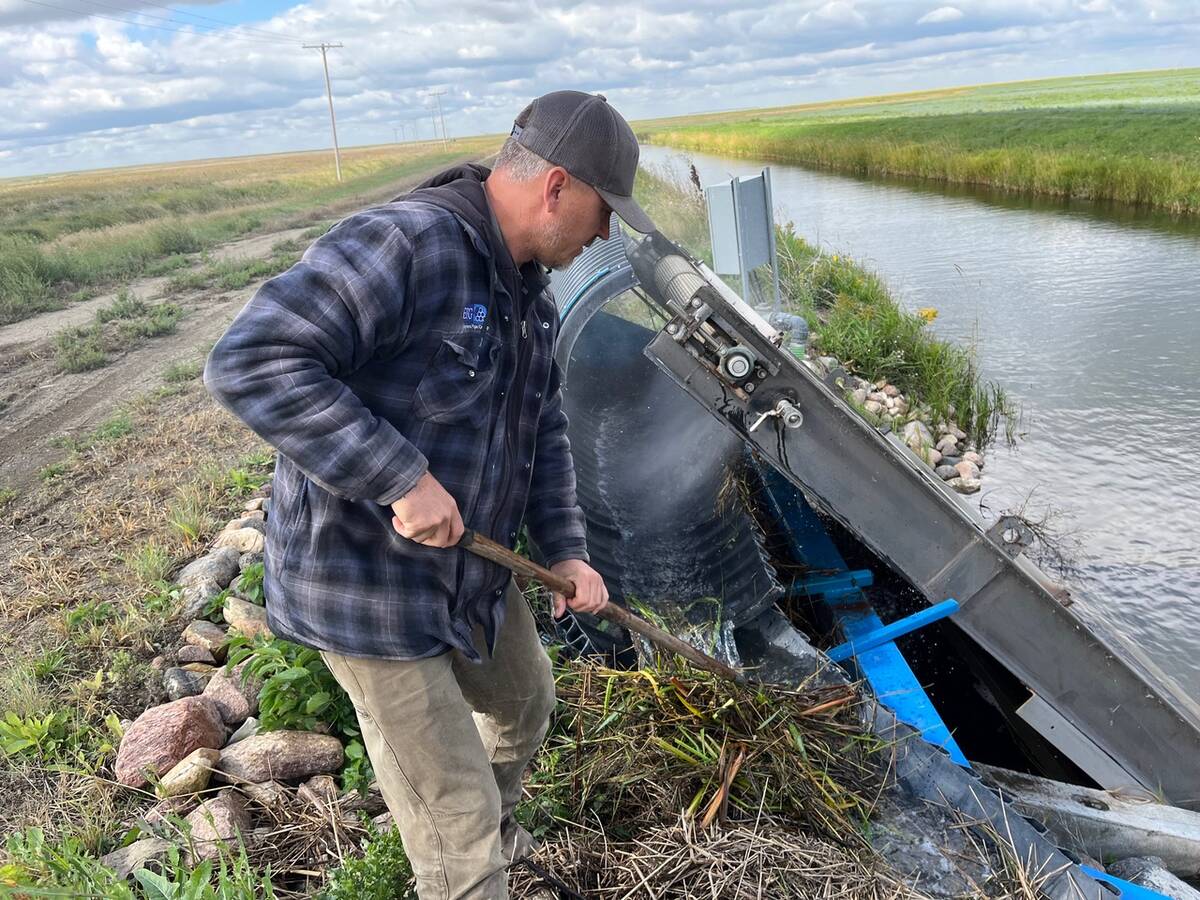About two dozen growers attending a Feb. 10 meeting in Eston, Sask., may have decided the fate of a proposed checkoff that will affect all Saskatchewan canaryseed producers.
Despite its best efforts, the Canaryseed Association of Canada was able to attract only 45 people to its annual general meeting, 37 of whom voted on the issue of establishing a $1.75 per tonne refundable checkoff for the specialty crop.
Twenty-five of those who cast ballots voted in favour of the levy, which was considered enough of an endorsement to ask Saskatchewan’s agriculture minister to establish a checkoff in time for the beginning of the 2005-06 crop year.
Read Also

Saskatchewan farmer uses tile drainage to manage water
The integration of both irrigation and tile drainage results in higher yields, water efficiency, improved soils and less nutrient runoff, says one producer.
“Producers have been given opportunities to express their opinions and a strong majority have supported the proposal,” said association president Ken Schikowski.
The Eston vote follows one held in January at Crop Production Week in Saskatoon where 66 canaryseed producers were in favour of the idea and 21 opposed.
When results of the two ballots are combined, 89 out of an estimated 1,200 Saskatchewan canaryseed growers have officially backed the idea, hardly a ringing endorsement but it might be enough to satisfy provincial regulators.
According to a spokesperson for the Saskatchewan Agri-Food Council, commodity groups seeking to implement a refundable levy must give producers ample opportunities to respond to the proposal and then demonstrate there is grassroots support for the idea.
Joy Smith said there is no magic approval number needed to proceed with the plan.
Schikowski was pleased with the standing-room-only attendance at the Saskatoon meeting but disappointed by the turnout in Eston, considering there were numerous media reports on the event stemming from Crop Production Week.
“I’m not sure why more people didn’t show up. Maybe they are just in support of it.”
Those who attended the meeting participated in a debate on the subject, Schikowski said.
Some farmers who have made good money on canaryseed and have adequate storage facilities on their farms expressed concern about raising the profile of a crop that can be a good revenue generator in years of low production.
Schikowski countered that the goal of the checkoff is to expand the market for canaryseed by exploring human consumption applications for a crop that has been exclusively marketed as a birdseed ingredient.
“There is already an oversupply and overproduction so a checkoff isn’t going to exacerbate the problem.”
The association plans to submit its levy proposal to the agriculture minister in March.
The minister will refer the proposal to the Agri-Food Council for its assessment on the matter and then he will decide whether a more extensive polling of canaryseed producers is required.
If a vote were ordered, the checkoff would need the support of at least 60 percent of those voting. So far the idea has received 76 percent support in Saskatoon and 68 percent in Eston.
“I expect that if we continue to hold more meetings it would probably be in that same range,” Schikowski said.

















